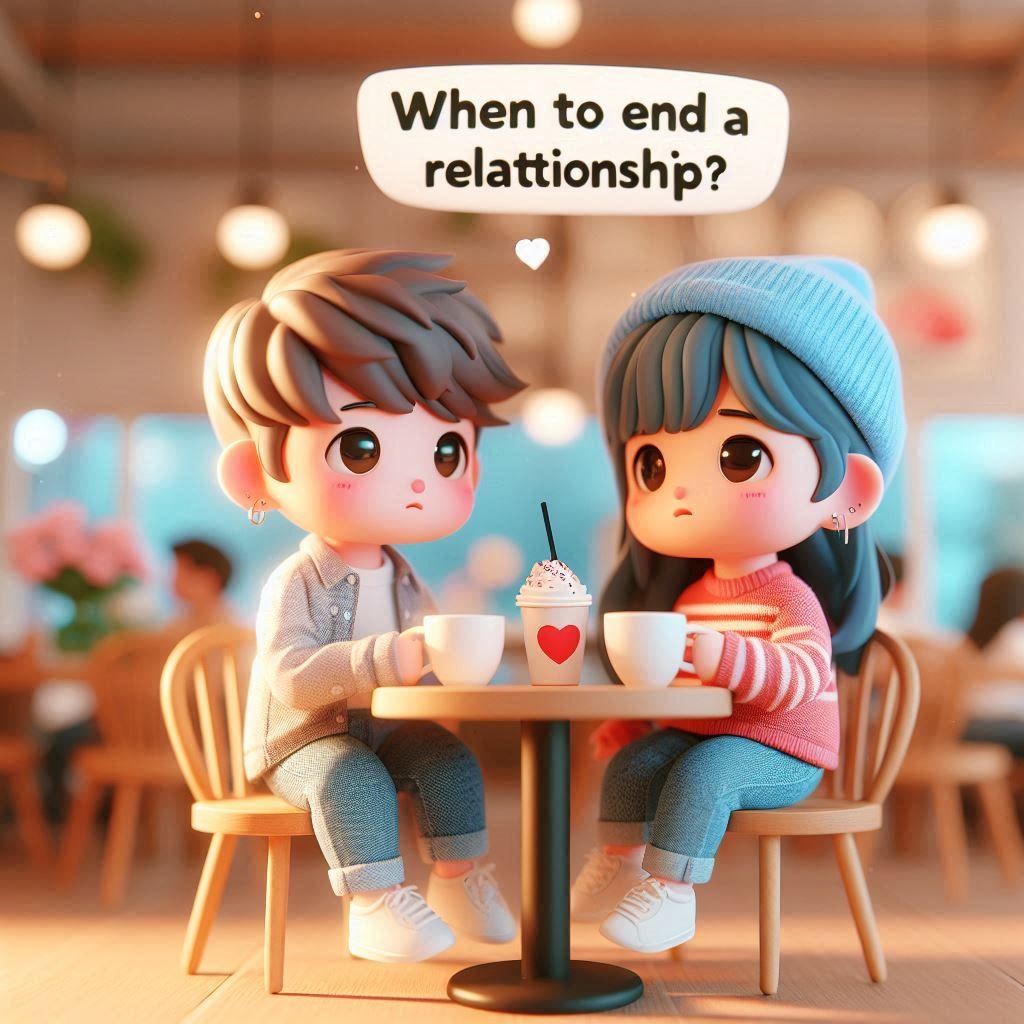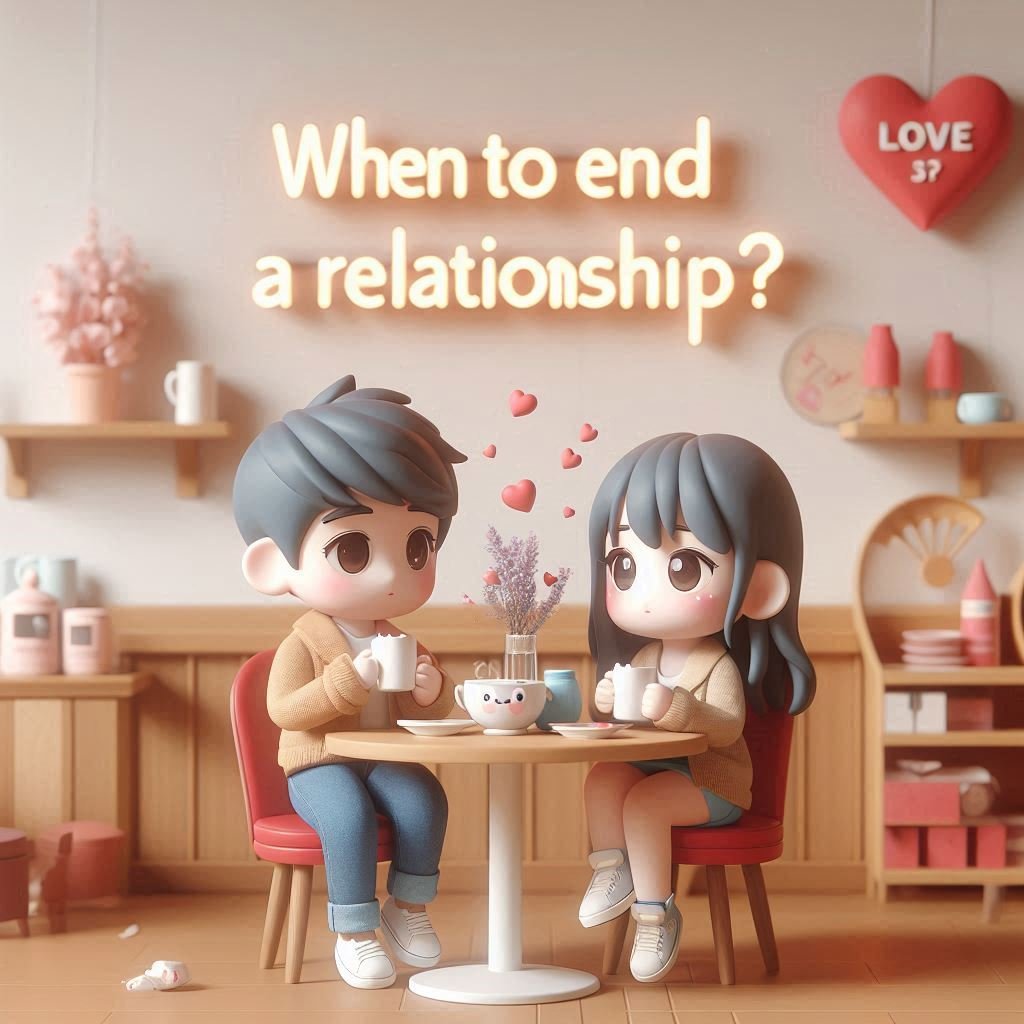Frequently Asked Questions – Wisher
When to end a relationship?

Deciding to end a relationship is a deeply personal and often heart-wrenching decision. It’s not something that comes easily, but there are times when it becomes necessary for your well-being. When the emotional connection that once brought you joy fades away, and you find it difficult to open up to your partner, it may be a sign that the relationship has reached its natural end. Emotional intimacy is the cornerstone of any healthy relationship, and without it, you might feel like you’re living with a stranger rather than a partner.
Constant fighting and unresolved conflicts can wear down even the strongest bonds. While every couple argues from time to time, being trapped in a cycle of endless arguments without any resolution is exhausting and unhealthy. When criticism, contempt, and blame become the norm, it may be time to reconsider whether the relationship is worth holding onto. A relationship should be a source of support, not constant strife.
Trust is another crucial element, and once it’s broken, it can be incredibly challenging to rebuild. If your partner has betrayed your trust through infidelity, lying, or other forms of deceit, and you find it impossible to move past the hurt, the relationship may no longer be viable. Trust issues, especially when they repeat, often lead to a breakdown that’s hard to recover from. Similarly, if you notice that you’re the only one making an effort to keep the relationship going, it creates an unsustainable imbalance. Relationships require commitment from both sides, and when that commitment fades on one end, the partnership struggles to survive.
Life can be hectic, but your home should be your sanctuary a place where you can escape the stress and focus on what truly matters. We believe in the magic of a beautiful, functional space that enhances your well-being and brings joy to everyday moments. Whether it’s sharing a meal under the stars with our outdoor dining sets or curling up with a book in a perfectly styled living room, our luxurious products are here to help you create those special experiences that make life feel brighter and your troubles seem a little lighter.
Incompatible life goals and values can also be a significant hurdle. Whether it’s differing views on marriage, children, or lifestyle choices, these core differences can create a gap that’s too wide to bridge. If you find that your visions for the future are fundamentally different, it may be a sign that the relationship isn’t meant to last. The hardest of all, though, is recognizing when a relationship has crossed into abusive or disrespectful territory. If your partner is ever physically, emotionally, or verbally abusive, it’s crucial to prioritize your safety and well-being by leaving. Abuse is never acceptable, and no relationship is worth risking your health or happiness.
Ultimately, ending a relationship is a tough but sometimes necessary step. If the relationship brings more pain than joy, and you’ve tried everything to make it work without success, letting go might be the best choice. It’s essential to prioritize your happiness and well-being above all else.
When to let go or fight for a relationship?
Deciding whether to hold on to a relationship or let it go is one of life’s more challenging dilemmas. It’s a deeply personal decision, often filled with emotional turmoil and uncertainty. You might find yourself weighed down by doubt, questioning whether the love you once shared can withstand the storm you’re currently facing. The signs pointing in either direction can be subtle, yet they often become clearer as you take a step back and assess your feelings and the relationship dynamics.

If you find that the relationship is leaving you emotionally drained, it could be a significant red flag. Relationships should uplift, not exhaust. Constantly feeling tired, emotionally, when you’re with your partner might suggest that the relationship is no longer nourishing your soul. Additionally, the absence of mutual respect can erode the foundation of any relationship. If respect and value are not reciprocated, it may be a sign that the connection has deteriorated beyond repair. When frequent conflicts arise without resolution, it’s often indicative of deeper, unresolved issues that may be impossible to overcome.
On the other hand, relationships worth fighting for usually have a strong emotional connection at their core. If you still feel a deep bond with your partner, that connection might be the glue holding everything together, even during tough times. Willingness to change and grow together is another positive sign. When both partners are open to addressing issues and making necessary changes, it reflects a shared commitment to the relationship’s future. Moreover, if you and your partner share similar values and goals, this common ground can serve as a strong foundation, helping you navigate challenges together.
I used to feel drained and worried all the time, especially when things got tough in my relationship. I realized that to be there for my partner, I needed to be there for myself first. So, I decided to focus on becoming healthier, managing my weight, and boosting my energy. It wasn’t easy, but finding the right tools made all the difference.
Ultimately, the decision to let go or fight for the relationship lies in understanding your own needs and the dynamic you share with your partner. Are you both willing to invest in the relationship’s future? Or do the signs suggest that it’s time to walk away for the sake of your well-being? It’s a tough call, but by listening to your heart and reflecting on these signs, you’ll find the clarity you need to make the best choice for yourself.
What is stonewalling in a relationship?
Stonewalling in a relationship is one of those silent, yet deeply impactful behaviors that can slowly erode the foundation of a partnership. When one partner emotionally withdraws and refuses to engage in meaningful conversation, it leaves the other feeling isolated and unheard. This can manifest in various ways—ignoring the other person, walking away during important discussions, or resorting to the silent treatment. While it may seem like just avoiding conflict, stonewalling often stems from a place of emotional overwhelm, where the individual feels unable to cope with the intensity of the situation.

A partner who stonewalls may seem emotionally distant, making it hard to have any real connection or resolve conflicts. This emotional withdrawal isn’t just a choice to be quiet; it’s often a reaction to feeling overwhelmed, leading to a physical response known as “flooding.” During flooding, the person experiences intense stress, which triggers a fight-or-flight response. As a result, they might shut down entirely, cutting off communication as a way to protect themselves from the perceived threat of the ongoing conflict.
When stress was taking a toll on my well-being and relationship, I knew I needed to make self-care a priority. I found that focusing on my skincare and overall wellness made a huge difference. Discovering a brand that’s not only vegan but also offers great deals on products like skincare and bodycare was a game-changer for me. It’s amazing how taking care of yourself can help you feel more balanced and connected.
The impact of stonewalling on a relationship can be profound. It tends to increase tension and leaves conflicts unresolved, creating a growing sense of isolation for the partner who is trying to engage. Over time, this behavior can erode trust and intimacy, making it increasingly difficult for the relationship to flourish. It’s a bit like watching a crack in the foundation of a house slowly widen until the structure is no longer stable.

It’s important to distinguish stonewalling from the silent treatment, even though they might look similar on the surface. Stonewalling is often an involuntary response to feeling overwhelmed, while the silent treatment is typically used as a deliberate tactic to manipulate or punish the other partner. Understanding this difference is crucial in addressing the underlying issues in the relationship.
To address stonewalling, it’s essential for both partners to recognize when it’s happening and understand the harm it causes. Open and honest communication is key. Creating a safe space for discussions where both partners feel heard can reduce the urge to stonewall. In some cases, seeking couples therapy might be necessary to learn healthier ways of handling conflict and improving communication. Addressing stonewalling head-on is crucial for maintaining a healthy and connected relationship, ensuring that both partners feel valued and understood.



